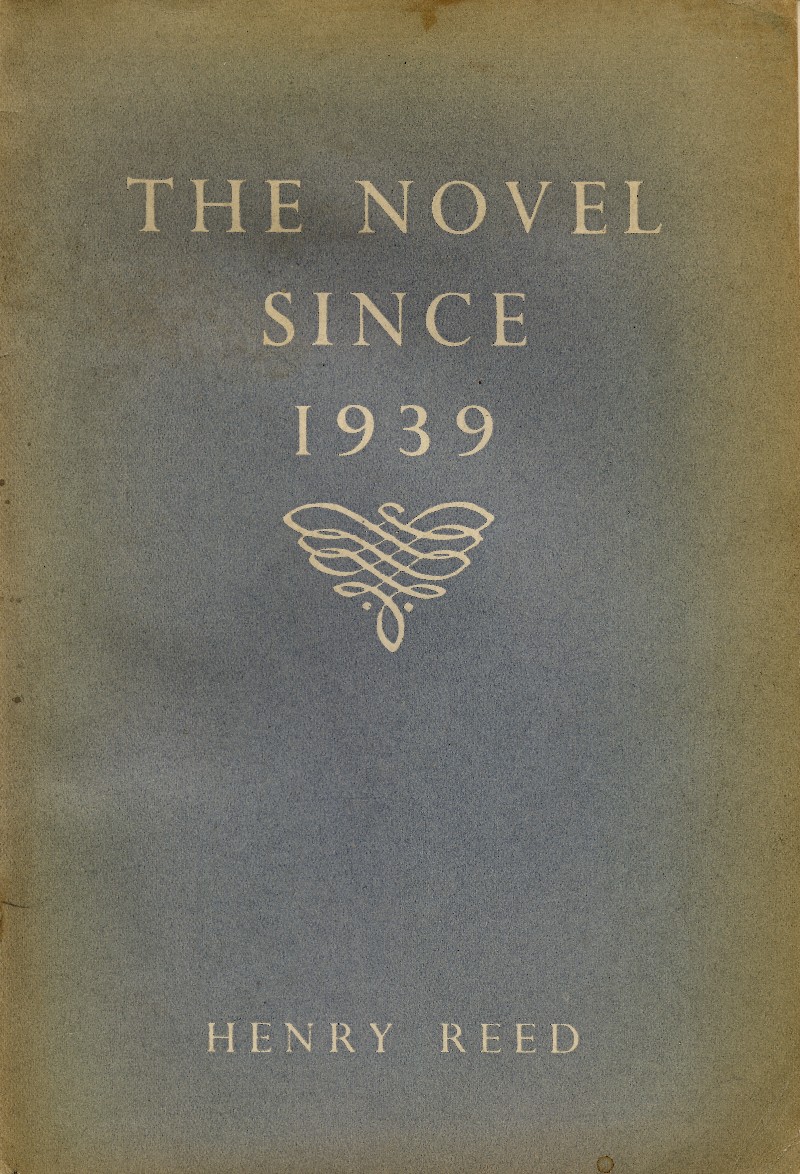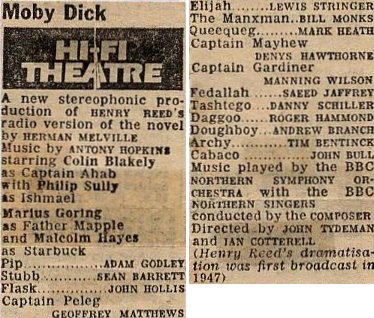|
Sitting of the FishesWith the university on Winter Break, students are always looking for some kind-hearted soul to care for their pet fish. Problem is, most people who would normally volunteer for such a job usually also go away for the holidays. Solution? Library fishsitting service!
Google NewsletterThe article accompanying this month's (inaugural) Google Newsletter for Librarians answers the burning question, "How does Google decide what result goes at the top of the list?"
You can sign up to receive Google Librarian News.
Jackets and CoversI've been considering cataloging my little Reed collection, using an online host like LibraryThing. The service allows you to post your collection online, tag your books, and browse other users' libraries with the same books. At present, however, LibraryThing pulls cover images from Amazon.com and other booksellers. Many of my Reed books are old and predate the ISBN system, so I expect my virtual bookshelf would look a little bare. Image uploading is
The jackets from some of Reed's books are on the pictures page, but I'm still in the process of scanning the rest of my collection. Other book covers I've scanned recently include: Eugenie Grandet, Pere Goriot, Three Plays by Ugo Betti, Hilda Tablet and Others, and The Streets of Pompeii. Update: Tim Spalding of LibraryThing commented to say users can now submit cover images. Thanks, Tim!
The Curious Incident of the Goat in the Night-TimeIn the year 1737, upon receiving word of the impending production of a particularly unfavorably satire of the rule of King George II, British Parliament passed the Theatrical Licensing Act, requiring that
no person shall for hire, gain or reward, act perform, represent, or cause to be acted, performed or represented any new interlude, tragedy, comedy, opera, play, farce, or other entertainment of the stage, or any part of parts therein; or any new act, scene or other part added to any old interlude, tragedy, comedy, opera, play, farce or other entertainment of the stage, or any new prologue or epilogue, unless a true copy thereof be sent to the Lord Chamberlain of the King's household for the time being, fourteen days at least before the acting....The Act (full-text) called for the Lord Chamberlain and his Examiners of Plays to review and, where necessary, censor potential scripts before they reached the stage, with the intent of protecting the corruptible public. At the time, plays were already restricted to performances in theatres which had been granted royal patents. The Patent Act was repealed in 1843, but the Licensing Act remained intact until 1968. Reed had adapted Ugo Betti's play, Crime on Goat Island, for the BBC's Third Programme in 1956. His translation had already appeared on the stage in 1955, at New York's Fulton Theatre. In 1957, however, a production was planned for the Oxford Playhouse, which ran into a "spot of bother" with the Lord Chamberlain's Office. A very helpful gentleman at the British Library, Arnold Hunt, emailed me that the Manuscript Collections contain the original typescript submitted for examination (with the famous blue pencil marks of the censors), as well as additional correspondence detailing the debate over Reed's version of Betti's play. Mr. Hunt writes: “On 3 November 1957, the Assistant Examiner, St. Vincent Troubridge [a descendant of Lord Nelson], reported that he was not prepared to recommend the play for licence. 'The story of this play, condensed into a couple of sentences, is that to the widow of a Professor living on a remote goat-farm with her daughter and sister-in-law, there appears an attractive young man, claiming to have been friendly with the Professor in a war-time captivity. He proceeds to have sexual intercourse with all these three closely related women in turn, the widow on the first night of his arrival. A few weeks later they murder him down a well. This to my mind is a great deal too farmyard to be permissible in common decency on the public stage.'”The examiner's synopsis is fair, even if he was taking his responsibilities a bit too seriously (read more about how censorship shaped modern British theatre). The script was eventually deemed "'sordid and revolting,' but not injurious to morals," and the play was granted a license to be performed, hinging on the removal of one passage, which Troubridge described as 'sodomy in reverse, about goats trying to make physical love to their goatherds.' Angelo, the scroundrel of the play, tells a story of how goats in his country sometimes fall in love with their goatherds: And eventually the shepherd begins to understand, and after a little while they... make love, there in the meadows, pressing close together, closer than a man and woman even. (Act I, scene iv.)To the credit of his station, the Lord Chamberlain himself, the Right Honourable Lawrence Roger Lumley, 11th Earl of Scarborough, commented "I don't feel very strongly about the ordinary sex part, but I do draw the line at the goats." (Coincidentally, the composer Donald Swann, who wrote the music for Reed's Hilda Tablet plays, mentions his regret at never having anything of his banned by Lord Scarborough, whom he called a "charming chap.") Crime on Goat Island opened in Oxford on December 2nd, 1957. The following day, the Times' special correspondent reported weakness in Betti's plot and doubt in Reed's script: "The jealousy between the three women, the division in the household: these are real enough. But as Betti and his translator Mr. Henry Reed handle them they subtract from the interest of the characters instead of adding to it." No mention is made, however, of lovesick goats (The Arts, 3 December 1957, 3). A history of censorship and its effects on British theatre was published last year: The Lord Chamberlain Regrets: British Stage Censorship and Readers' Reports from 1824 to 1968 (Amazon.com US).
Gray Flannel Jarrell"War Poetry and the Aesthetics of Anonymity": Robert Archambeau blogs reaction to Kevin Prufer's excellent poem, "Army Tales," and the traditions of Wilfred Owen, David Jones, W.H. Auden, and Randall Jarrell. (Via ever-lovin' dumbfoundry.)
In Defense of Sergeants MajorAn interesting article came to my attention this week: "'Naming of Parts,' 'Judging Distances,' Literary Snobbery and Careless Reading in the Analysis of Henry Reed's 'Lessons of the War'," by Joseph Petite, Ph.D., published in The Journal of Evolutionary Psychology 26, nos. 1-2 (March 2005). Essentially, Petite argues that past critics of "Naming of Parts" and the other "Lessons of the War" poems have relied too heavily on the supposition that there are two, separate voices, or tones, in the poems.
Traditional interpretations point to polar changes in Reed's tone, language, and diction, and argue that these opposites can be explained in one of two ways: either there are two voices in the poems, and we are hearing both the instructor and the recruit; or there is only one point of view — that of the recruit's — and we are listening through him, and are privvy to his inner thoughts. Petite posits that this is so much literary trickery, and that too much reliance has been made on Freudian interpretations. Essentially, he believes the possibility has been ignored that there is just one speaker in the poems: the instructor. ‘Critics do not credit Reed with a more profound insight—the instructors are victims of war, grappling with how to be human in inhuman circumstances. Psychologically, language is their last line of self-defense, a way to survive the dehumanizing acts war requires. There is no need to "explain" the presence of such language. War-weary, instructors long for beauty, finding it in nature undisturbed by war and expressing themselves in a second register.’Petite is particularly suspicious of O'Toole's stylistic analysis, Condon's "Freudian tour," and the conclusions in Beggs' dissertation. It's a provocative thesis, but I find it hard to agree with a lot of what Petite puts forth, although I do concur that lengthy discussions of stylistics are tiresome, and often include more magical thinking and sleight-of-hand than proofs. But the idea that 'Sometimes a cigar is just a cigar,' and there are no sexual connotations in "Naming of Parts" is patently ridiculous, and attempts to remove all the fun and playfulness from the poem. It's like arguing that all the women on Monty Python's Flying Circus were actually women. By minding the evidence in biographies of Reed, it's obvious that the "Lessons of the War" are mocking in tone, and more or less autobiographic. Not the least of which is Scannell's assertion that Reed entertained his fellows in basic training by imitating their instructors. Most revealing, however, is the fact that when Reed adapted "Naming of Parts" (.mp3 file) for BBC radio, he split the poem into two speaking parts, and took the part of the recruit, himself. A longer excerpt of "Literary Snobbery" can be found on the Questia website, and the entire article is available from Amazon.com as a digital download for $5.95.
Hi-Fi TheatreI have eight citations to articles written by or about Reed from the Radio Times, dating from the 1950s. Since the Radio Times is more or less the British TV Guide, I suspect there are a lot more references, but these are the only ones other folks have cited. (And one or two of them are suspect!)
So I wasted twenty or thirty minutes today, browsing online bookshops that deal in collectible magazines and periodicals. Even if they all don't turn out to contain anything of interest, it still wouldn't be entirely cheap to buy the issues outright. I'd rather have groceries. My other option is to take a field trip to the Library of Congress in D.C., which is always productive, but a bit of an adventure for a hermit like myself. It would only cost me 20¢ per photocopy, and I would be able to peruse in relative leisure. Photocopies are so sterile, though. Nothing like the feel of an old magazine: the brittle, yellow pages smelling warmly of neglected attics and dank basements. The small treasure I found today was on the WordAloud website. WordAloud is a repository for information on radio broadcasts. They have airdates, synopsis, and credits for all sorts of BBC radio drama, including some of Henry Reed's. Hardy's "Battle of Trafalgar"? Never heard of it. Some adaptation of The Trumpet Major? "The Sergeant's Song"? The prize among all these scraps and clues, was a clipping from a 1979 Radio Times, listing the credits for Reed's (stereophonic!) re-working of his 1947 radio adapation of Moby Dick: Update: The London Times reveals that "The Battle of Trafalgar" was adapted for radio by Reed from Thomas Hardy's The Dynasts, which was orginally broadcast in its entirely as six ninety-minute episodes in June of 1951 (Savage, in British Radio Drama). Unfortunately, the Times was on strike at the time of the Moby Dick broadcast.
In Their Own VoicesAges ago, when I was working at a public library circulation desk, someone checked out a set of audio tapes of James Joyce's Ulysses. Having worked at the library for some time, I hardly took notice of what people were checking out: after a while, the books become just product that barely registers, like so many blocks of wood.
These cassette recordings caught my attention, however, because I happened to notice the narrator: it was none other than Joyce, himself. Never had it occurred to me that such a thing could exist, despite the fact that the phonograph had been around since 1877, and Joyce lived until 1941. A recording of the author reading Ulysses seemed impossibly anachronistic. Which is why this BBC article caught my eye: Andrew Motion, the UK Poet Laureate, has founded the Poetry Archive, an effort to present recordings of poets reading their own work, in order to "help make poetry accessible, relevant and enjoyable to a wide audience." Available among the recordings are such historic poets as Kipling, Sassoon (reading "The Dug-Out"!), Tennyson ("The Charge of the Light Brigade," no less), and Yeats ("The Lake Isle of Innisfree"). The mere existence of all these tracks caused me no end of cosmic dissonance. Although Reed himself is absent from the archive, many of his contemporaries are represented, including Louis MacNeice and Vernon Scannell. The recordings are presented as embedded RealAudio, but according to one of the developers, there's still hope of better access to the files (plus, a picture from the launch party).
|
||||||||||||||||||||||||||||||
|
|
|||||||||||||||||||||||||||||||










